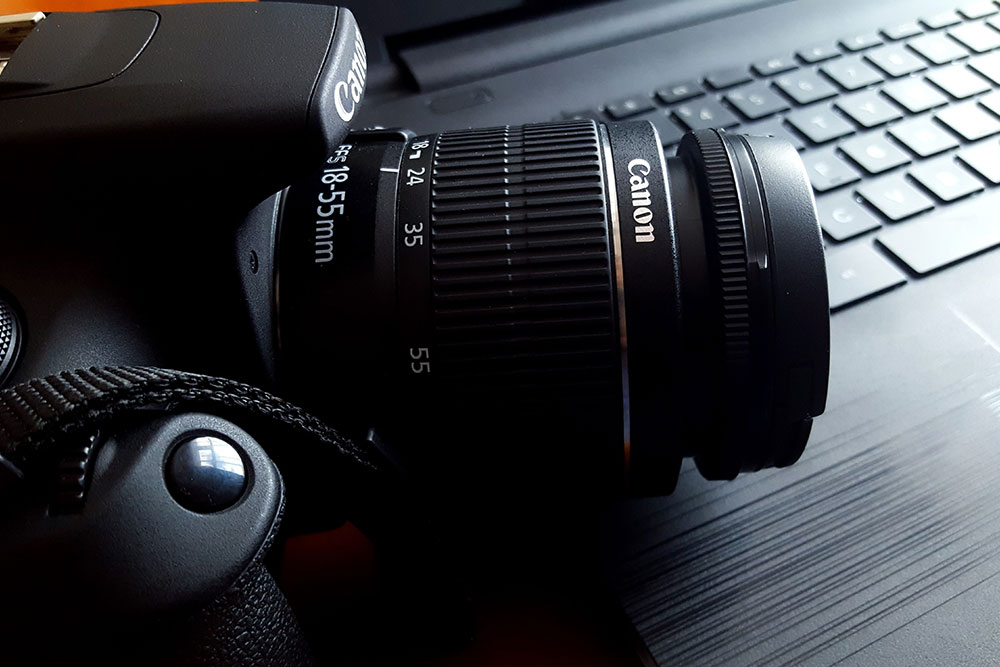Transitioning from an amateur to professional real estate photographer is not an easy feat. It takes time to build a network of clients among seasoned real estate agents and a robust online presence, not to mention the need for healthy investment capital and proper equipment. But, before you break the bank, there are just a few tiny details you should know.
Name your company
Laws regarding small business are different from state to state, and country to country. Before making any business decision, seek out the advice of a licensed attorney in your jurisdiction. And have a chat with your future accountant. One thing is for sure: if you want to build a brand around your business, you must first pick a name for it. Make it memorable, bold, innovative, and strongly related to your niche. Then check trademarks rights. Most photographers go with their name and get off cheap. To be on the safe side, search the name in the TESS database (Trademark Electronic Search System) and even do for a Google search.
Choose a business format
Regarding the business structure, you can go with one of the following:
- LLC: helps you protect your assets and business responsibilities. A single member LLC can pass-through taxes to their tax return like a Sole Proprietor.
- Sole Proprietorship: this business form means you’re the sole owner of your business – all incomes and losses are taxed on your income tax return. The danger is that you will be personally liable for all your business’s debts and, if someone sues you, everything you own will be at risk.
- S-Corps: the significant advantage of an S Corp is that the owner will not have to pay self-employment taxes, but the formalities of setting up such a business are a little bit more complicated than with the other two.
- C-Corps: in this case, earnings are taxed at a corporate level. However, there are fewer limitations for shareholders, and the company can go public. For a photography business, this might be too much of a hassle given that the formalities alone are time-consuming and quite complicated. Not to mention that all earnings will be taxed at the corporate level.
Get a social security number for your business
An Employer Identification Number is not mandatory in the case of a Sole Proprietorship but will help you if you choose to go with an LLC business structure or otherwise. Not to mention everybody will ask for it, from insurance companies to banks and payments companies. Click on the link and put in your data.
In Canada, you’ll need a Business Number, which is a 15 character identifier of your business. Think of it as your business tax ID. The Canada Revenue Agency assigns your company a Business Number when you register for any one of the four major tax accounts. Again, Sole Proprietorship or small businesses are, usually, not required to have one, but you should take this up to your accountant. If you’re setting up a photography business in the UK, take a look here. Find out everything there is to know about the tax law in your country and decide whether you wish to register as a sole trader, limited company, or partnership.
Set up a separate bank account
Always keep your finances separate, regardless of your chosen business format. Every single payment that you earn with your photography business has to go into your business account, and every business expense has to come out of that same account. Go to a bank and set up a bank account for your business. While you’re there, get a credit card, too. Things might be a little slow in the beginning, and you may want to have a safety net.
Hire an accountant!
When it comes to taxes, it’s good to work with someone who knows the ropes. Not to mention that a qualified tax professional can help you save money and give you peace of mind. Ask a business expert if he can take care of setting up your business, too, besides keeping financial accounts. There’s no need to put yourself in additional stress when you’re working so hard to grow your business.
Conclusion
These are only the first five steps to setting up your real estate photography business. Not overly complicated, but you’ll still need to to pay close attention to what needs to be done. In our next blog posts, we’ll be talking about work ethic and how to decide on prices. Stay tuned!
Julia E. Miller
Related posts
4 Comments
Leave a Reply Cancel reply
This site uses Akismet to reduce spam. Learn how your comment data is processed.







[…] on your way to becoming a pro. In our last photography blog post, we’ve talked about how to kick-start your business. Now, let’s tackle the next vital steps to professional photography: finances and work […]
[…] technological advancements and a wide variety of tools overwhelm many real estate enthusiasts to the point where they do not know what best fits their needs! “What type of camera should I […]
[…] who take up real-estate photography have an eye for detail by nature. You would think then that they have no trouble organizing a home […]
[…] you’re managing a photography business, you are a business owner who may be enjoying the benefits of choosing your own work schedule and […]